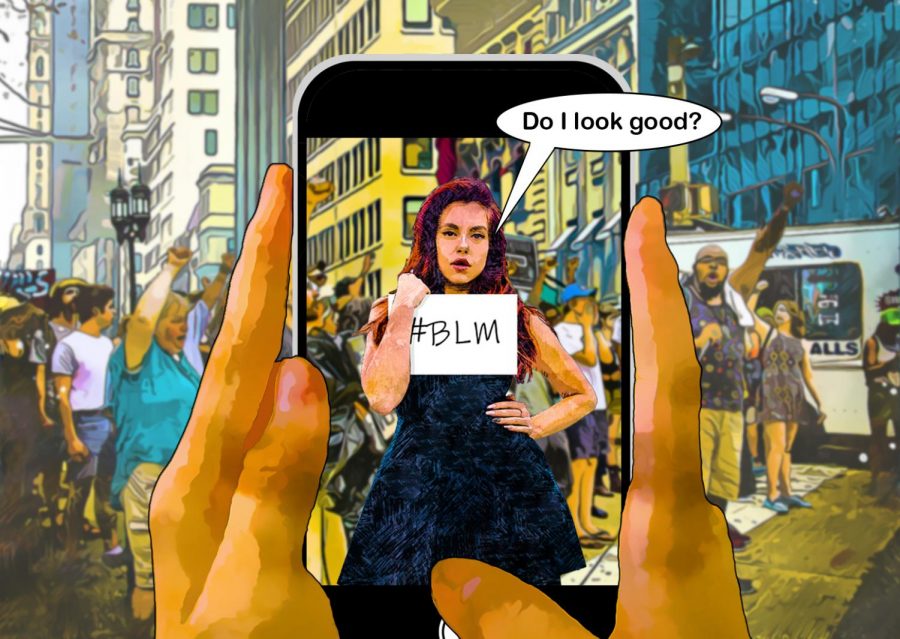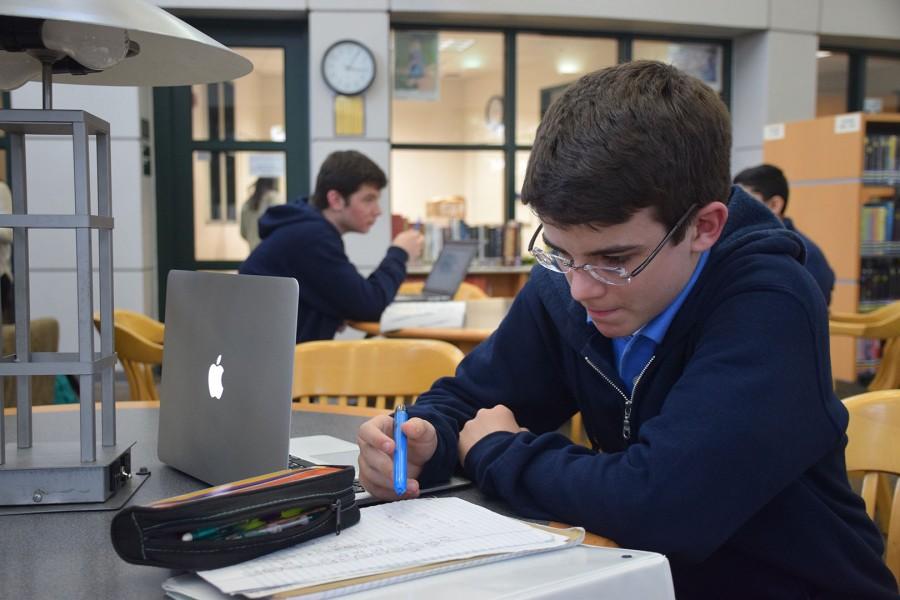On June 2nd, only a few days following George Floyd’s death, millions of Instagram users took less than 10 seconds of their time to upload a black square on their profile, hashtag the photo with “#blacklivesmatter” and sit comfortably in their “activism;” activism that, unfortunately, was their only acknowledgement of George Floyd’s murder.
By the end of June 2nd, the #BlackOutTuesday hashtag surged the internet with over 24 million posts –– over double the amount of signatures under George Floyd’s change.org petition. Instead of taking direct action against police brutality, millions opted to veil their indifference in the form of a meaningless Instagram post. This huge discrepancy imposes another impending problem we must face: the harmful effects of performative activism.
“I thought it was interesting,” president of Students Take Action club senior Grace Field said. “Were they just trying to cover up their silence because they saw everyone else posting the black square?”
AP Psychology teacher Donna Walker said that teenagers are more susceptible to negative criticism from their peers so they hastily give into performative activism. Positive affirmations that they receive online trigger their brain’s reward system –– creating a never ending positive feedback loop. Individuals are then stuck in an unhealthy cycle of needing constant validation from others. While this is an effective way to boost a person’s self justification, it draws attention away from the real pressing issues at hand.
“I did [post the black square],” senior Brooke Beers said. “I realized after the fact that it wasn’t the best idea… There were a lot of people who would only post the square and then never post again.”
Whether Instagram users posted the black square in fear of receiving criticism from their friends or in hope it would give them more attention online, it still drastically undermined the main objective of the day itself. Jamila Thomas and Brianna Agyemang, two Black female music marketers, started this initiative to emphasize the power of the Black community in the music industry. This movement was specifically made for Black creators to take the spotlight for the day. But instead, it silenced them, drowning their messages in the deep abyss of black nothingness. Not only were black voices nowhere to be found, but also resources to helpful links and petitions got lost under the #blacklivesmatter hashtag.
Singer Madison Beer was also under high scrutiny when she was seen at protests, posing for a photoshoot in the middle of a street. While I doubt Beer’s intentions were harmful, the video that circled online is undeniably ridiculous: Beer is pictured posing on the sunroof of a Range Rover while multiple photographers take shots. I’m sure there were more useful ways to report on the protest rather than having paparazzi come in and capture an “instagram-worthy” photo for her. Beer’s behavior is also shown in regular individuals as well.
“I saw videos of people getting out of their car to take photos at the protest and then get back in their car and leave,” Field said.
But the blame is not only set on individuals. Major corporations, knowing they had to keep an online reputation, also had their fair share in performative activism.
NFL Commissioner Roger Goodell tweeted about the ongoing frustration of Floyd’s murder and how he would patch up the systemic issues in the NFL itself. However, he failed to mention Colin Kapernick, San Francisco 49ers’ Quarterback, whose kneel during the National Anthem cost him his career in 2016. Goodell’s meaningless coverup, or any coverup for that matter, cannot be taken seriously without some real change backed behind it.
I understand those who want to show solidarity with the movement. Of course we want to stand against social injustices, but posting a square and saving face is not an effective way to do so.
For those who want to truly help, I encourage you to engage in open dialogue, donate to causes and, most importantly, educate yourself. All of these actions do not have to be publicly broadcasted.
“I think we need to have a lot of conversations,” Beers said. “We shouldn’t expect oppressed people to be teaching us. We should be looking into educating [ourselves]. There’s a ton [of resources] on Instagram … I definitely learned a lot in the past couple months. I feel bad for not knowing about it before.”
And for those who shame others for staying silent online, your berating is not helping the cause either. Who’s to say that they aren’t taking action behind the scenes? Everyone has different conduits for expressing their activism; while some like to continuously post resources online, others might opt to privately donate money instead.
If we want to take social injustices more seriously in the future, make tangible actions for a change.










